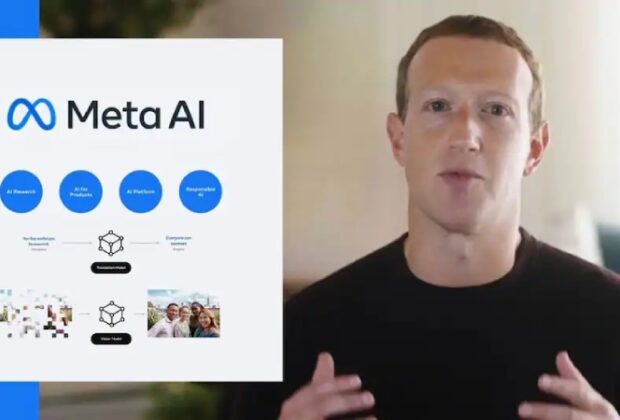In order to stay competitive in the AI space, Meta has consistently released new generative AI models, features, and research. Nonetheless, the business is currently setting itself up to enter the field of artificial general intelligence (AGI).
CEO of Meta Mark Zuckerberg updated the public on the company’s AI initiatives on Thursday by posting a nearly two-minute video on Threads. The film included a sneak peek at the company’s long-term objectives for developing artificial general intelligence (AGI).
“Today I’m bringing Meta’s two AI research efforts [FAIR and GenAI] closer together to support our long-term goals of building general intelligence, open-sourcing it responsibly, and making it available and useful to everyone in all of our daily lives,” Zuckerberg remarked in the video’s beginning.
Additionally, he stated that as the technology would be essential to enabling the next generation of AI services and providing the greatest AI-enabled help, the demand for developing entire artificial intelligence has increased more than ever.
Meta is constructing a great deal of infrastructure as a result. The corporation will have 350,000 Nvidia H100s by year’s end, or roughly 600,000 H100s equivalents of computing if other GPUs are taken into account.
To put such processing power in perspective, according to research firm Omdia, Meta and Microsoft were the biggest buyers of Nvidia’s H100 GPUs in 2023, acquiring up to 150,000 apiece. By the end of the year, Meta plans to have 350,000 H100s, more than doubling its already substantial investment.
What is AGI, therefore, and why is Meta concentrating so much on creating and investing in it?
AGI, to put it simply, is AI that is just as capable as humans at complicated tasks like learning and thinking. Even the most sophisticated generative AI models today still need human guidance and instruction to finish a task.
Because the model can operate independently, artificial general intelligence (AGI) enables the removal of human guidance, supervision, and training. This advancement should greatly expand the range of activities that AI can accomplish and the ways in which it can help humans.
But people are often afraid or uneasy with AGI because of its extraordinary intellect and capacity to imitate human behavior. Although AGI has only been a long-term aim up until now, Meta’s improvements suggest the technology may advance faster than expected.
In closing, Zuckerberg said that Meta is now training LLaMa 3, the most recent iteration of Meta’s sophisticated large language model, LLaMa 2, and hinted at the development of further models in the future.
“Overall across all this stuff, we’re just getting started,” Zuckerberg said in closing.








